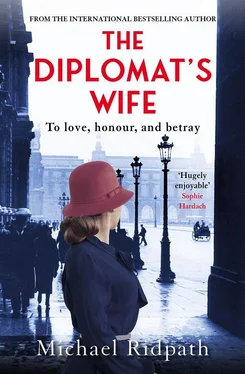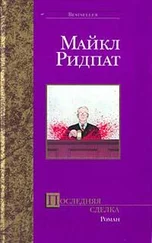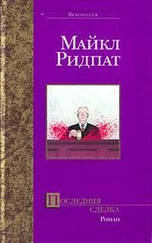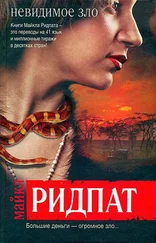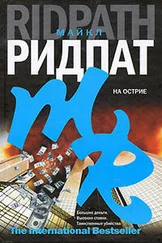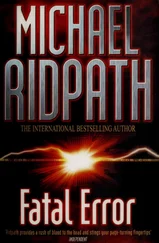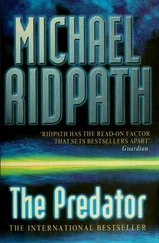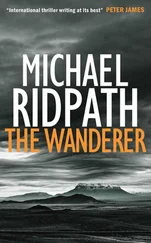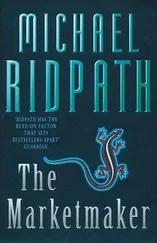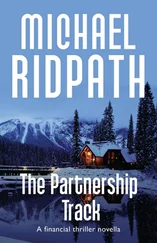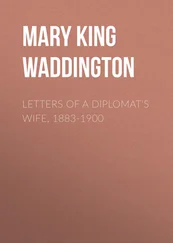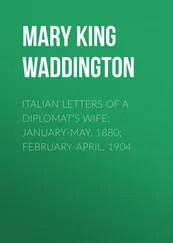I had tried this argument out on a number of people over the previous year. Mostly it only served to irritate them, so I had given up. But I didn’t want to hide my opinion from Mr Meeke, and I was curious how he would react.
He looked thoughtful for a moment. ‘No. It isn’t.’
We rode on in silence. I was not sure whether I had won my argument, or whether he was just being diplomatic, but he had listened to me.
It was a long time since I had spoken to a man apart from Hugh who had really listened to me. In fact, Hugh was the only one.
We left the moor, dropping down towards the Hall, passing Dockenbush Farm and trotting along Dockenbush Lane, a tiny road bordered by high banks and hedges.
We crested a small hump, two abreast.
‘Hello. What’s that?’ said Mr Meeke.
The lane ducked down and then turned sharp right. A knot of four or five people, one of whom wore a policeman’s uniform, was gathered around a car, the bonnet of which was crumpled into the trunk of a large oak tree right on the bend.
The car was blue. I recognized the make. A Riley.
Something was stretched out on the road, something covered by a travel blanket. The travel blanket I had given Hugh for Christmas two months before.
‘Oh no. No!’ I cried.
I jumped off Tallow and ran to the car.
The policeman, PC Melluish, stood in my way as I rushed towards the body. ‘Now, miss, best not to look.’
‘I must see him!’ I shouted.
‘No, miss.’
I kicked PC Melluish hard in the shin and pushed past him.
I pulled back the rug from Hugh’s face. I will never forget what I saw — it was a mess. His forehead and cheek had been smashed. There was blood, but there was also bone and pinkish stuff, which I realized later was brain matter.
It was truly horrible. But I’m glad I saw him that last time, in Dockenbush Lane.
June 1979, Chaddington Hall
‘Dockenbush Lane was the back way you made me take coming here?’ Phil asked.
‘That’s right. That’s where Hugh died.’
‘It’s a shame I never got to meet him.’
‘A great shame.’
‘I’m sorry, Grams,’ said Phil, reaching over to touch his grandmother’s hand.
Emma seemed surprised by the gesture, but squeezed Phil’s hand gratefully.
‘How did it happen?’
‘They said it was ice on the road. That he skidded.’
‘You sound doubtful?’
‘There had been a tiny bit of frost on the ground early that morning, but there was none on the road by then. And I couldn’t understand at that point why Hugh had taken Dockenbush Lane. You’ve seen it. It’s not exactly more scenic, it just takes longer than the Tavistock Road.’
Phil frowned. ‘“Understand at that point”? You mean you understand now?’
‘I think so. Come on. Let’s go and see his grave. It’s in the churchyard.’
They left the bench under the wisteria, and Emma led Phil to a small path at the side of the house that passed some sheds on the way to the church. Emma stumbled and grabbed at Phil’s arm for support.
‘Sorry,’ she said. ‘I seem to be unsteady on my feet these days.’ She clung on to his arm.
‘I didn’t realize you were a real communist,’ said Phil. ‘Mum never told me. Does she know?’
‘Of course she knows. I think she’s ashamed of me. A loyal Conservative, your mother, always has been. It’s her form of rebellion. Against me.’
‘Are you still a communist?’
‘No. What with one thing and another, it lost its allure. But I still vote Labour. What about you? Presumably last month was your first election. What did you vote?’
‘Conservative,’ Phil said.
‘Just like your parents.’ Emma made no attempt to keep the disappointment out of her voice.
Sod you, Phil thought with a flash of irritation. I’ll vote the way I want.
They passed through a gate in a low wall into a churchyard. Tall oaks guarded the perimeter, throwing most of the yard into shadow, and three or four smaller, twisted dark green yews dotted the uneven ground. The church lurked a few feet away, and another gate at the far side of the yard led out towards the village. One large corner was given over to memorials of varying degrees of ornamentation to Chaddingtons and Breartons.
‘Here it is.’ Emma stopped in front of a relatively simple stone.
Hugh Brearton 1911–1934
‘I have spread my dreams under your feet’
‘It’s Yeats,’ Emma said. ‘I chose it.’
‘Why was he called Brearton, not Chaddington?’
‘We all started off as Brearton — it was my maiden name. Hugh should have become Lord Chaddington eventually.’
Emma stood staring at the stone.
Phil noticed a wooden seat a few yards back against the wall of the churchyard and withdrew. Next to Hugh’s grave he saw another for Lord Chaddington, but there seemed to be none for Lady Chaddington. Phil wondered where she was. Was it possible she was still alive? Surely someone would have told him if she was.
Given what he was coming to know about his family, probably not.
He watched his grandmother stand straight but perfectly still at the grave of her brother.
He didn’t yet understand what she was doing. He knew whatever it was was really important for her, and he was pleased that she had decided to share it with him. He was becoming increasingly curious where all this was leading, and happy to go along for the ride.
The churchyard was peaceful, and Phil was content to wait in the late-afternoon sun peeking beneath the leaves of the oaks. After ten minutes or so, Emma turned and joined him on the bench. Her eyes were dry and her expression thoughtful, rather than miserable.
‘Let me tell you about Hugh’s funeral.’
February 1934, Chaddington
We were all devastated, Mama, Papa and me, but we were all devastated alone.
I felt numb. I felt as though I was floating six feet above everything in a daze. I didn’t cry for twenty-four hours. I was lost.
I didn’t hug my parents, and they didn’t hug me, or each other, from what I could tell. I’m ashamed to say I was polite to them. Polite! What was I thinking? What were we doing?
Papa crumpled. Everything about him sagged: his face, his shoulders, his spirit.
My mother was immediately angry. Her eyes were aflame. Every interaction with my father or me seemed to consume her with irritation, irritation which she could barely restrain with politeness. Whereas my politeness was a hazy indifference, hers was a fiery cold.
We needed Sarah to unlock our grief. We took too long to track her down and tell her, but when we eventually found her, at a friend’s house in Northamptonshire, she came at once. She hugged us all. She made us all cry. She made us talk about Hugh. I was so relieved to see her; we all were.
The other person who was a help was Roland Meeke. He helped my father with the practicalities. He helped my mother with her frustration. He helped me talk about my brother, explain him, remember him. There was no foxhunting for Roland, but he and I did go for a couple of long rides together.
Sarah and he organized the funeral, which was a major event. Hugh had had lots of friends, from school, from Cambridge, from all sorts of unlikely places. As did my parents from London, and then there were all the county people, and relatives young and old, some of whom I couldn’t remember ever meeting. Hugh’s death touched a multitude.
St Mary’s Chaddington was overflowing — barely a third of those present could fit in the church. The churchyard was heaving; I was glad that I had a place in the procession directly behind the coffin.
Читать дальше
